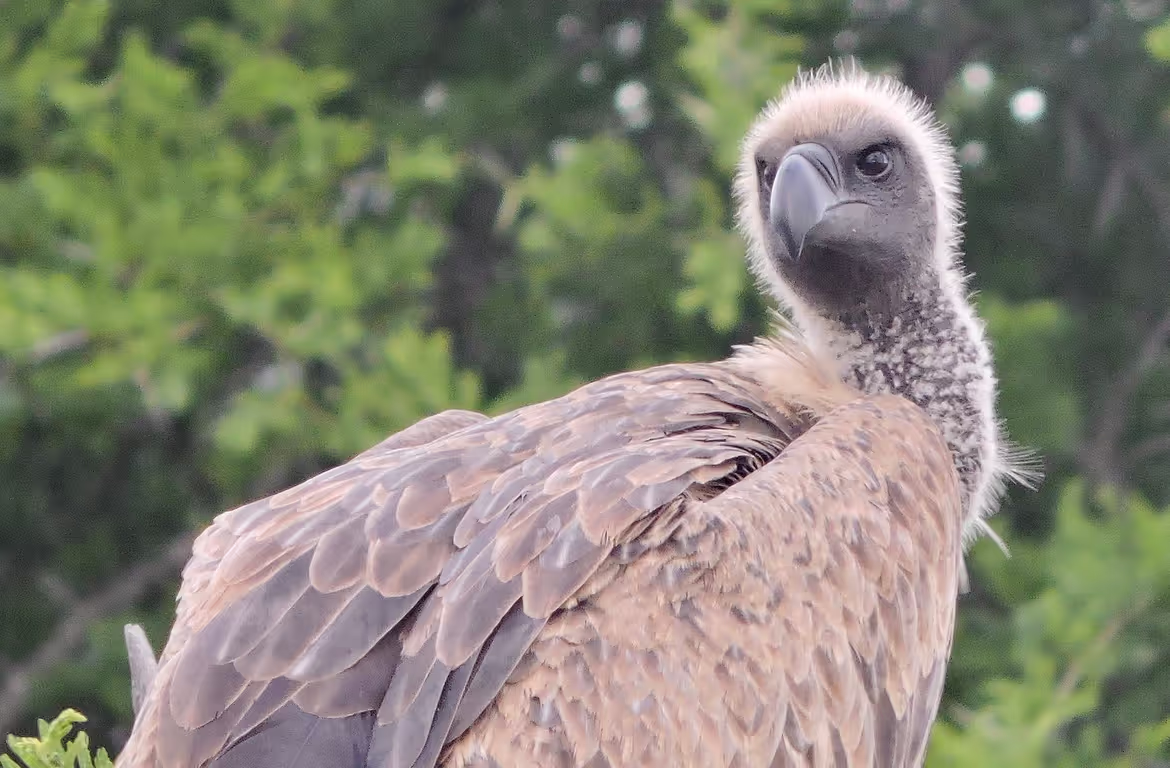Wildlife ACT is excited to share more about our Southern Drakensberg Conservation Project, which focuses on endangered vulture conservation in this beautiful region of KwaZulu-Natal. The Project, which falls under the our Vulture Conservation Programme, calls on volunteers from around the world to assist in daily on-the-ground conservation efforts being made in the Southern Drakensberg region.
Despite being critical to our ecosystems, vulture numbers are in serious decline, with only 50 to 100 breeding pairs of Bearded Vulture in South Africa and Lesotho and about 4,500 breeding pairs of Cape Vulture left in South Africa. Now welcoming volunteers, the Project aims to further local conservation efforts for endangered and priority wildlife species, particularly the vulnerable Cape Vulture and the regionally critically endangered Bearded Vulture.

Made possible through a collaboration between Wildlife ACT, the Drakensberg Conservation Initiative and Ezemvelo KZN Wildlife, this project forms part of Wildlife ACT's ongoing efforts to monitor and protect endangered and priority species and to assist in effective management of protected areas. The endangered vulture conservation aspect involves the monitoring of nesting sites, managing and maintaining safe vulture feeding sites, conducting a long-term remote camera trapping survey in the area, responding to emergency events, and more.
"We are excited about the Southern Drakensberg Conservation Project and look forward to focusing some significant energy on the regionally critically endangered Bearded Vulture," says Chris Kelly, co-founder of Wildlife ACT. "Vultures play a critical role in maintaining healthy ecosystems, and their decline is a serious concern. We hope to make a positive impact on the conservation of these magnificent birds within the Southern Drakensberg region.”

Highlighting Vulture Conservation
The Southern Drakensberg Conservation Project is primarily dedicated to conserving vultures and protecting the two cliff-nesting species of vulture found in the region - the Cape Vulture and Bearded Vulture - which are at risk of extinction.
The Bearded Vulture is of particular concern to the project due to its regionally critically endangered status on the IUCN Red List and a low population estimate of 50 to 100 breeding pairs in South Africa and Lesotho. Over the past century, this species has experienced a significant decrease in numbers, resulting in a geographically isolated population confined to the Maloti-Drakensberg mountain range.

Vultures are subjected to several dangers, including poisoning, electrocution, collisions with energy infrastructure, habitat loss, and food shortages. Not only are these birds vital components of the ecosystem, but they also possess a digestive system that contains special acids capable of handling numerous diseases that are potentially hazardous to human beings, making their protection critically important for preventing the spread of disease.
“Vultures provide vital ecosystem services in our natural, agricultural, and rural environments,” explains Wildlife ACT’s Vulture Conservation Programme Manager, Anel Olivier. “The important role they play in the cycling of nutrients through the highly-efficient disposal of organic waste from the environment is of utmost importance to human health and environmental integrity. They are adapted to efficiently dispose of rotting flesh and bone, as well as other organic waste, thereby reducing the spread of disease amongst wildlife and livestock, as well as abating the risk of pathogen spill-over to humans.”

Vulture Conservation in the Maloti-Drakensberg Park World Heritage Site
The Southern Drakensberg Conservation Project takes place both in and around the Maloti-Drakensberg Park World Heritage Site in South Africa, a crucial stronghold for several threatened and endangered species. The Heritage Site is a vast protected area spanning over 240,000 hectares and stretching along the border of South Africa and Lesotho. This protected area is home to an incredible diversity of plants and animals, including over 2,000 species of plants and a variety of rare and endangered animal species, including the Cape and Bearded Vulture. It is an important site for endangered vulture conservation.

“One of the great things about this Project is that it demonstrates the importance of conducting conservation work outside of protected areas as well as inside of them. We are fortunate to have a number of local landowners supporting conservation efforts by offering our team access to their properties in order to monitor nests and conduct surveys. Without their support, we would risk missing out on vital information,” says Phillip Swart, Priority Species Monitor, Southern Drakensberg.
Join Wildlife ACT in Endangered Vulture Conservation
Through Wildlife ACT’s Volunteer Model, conservation enthusiasts from around the world and all walks of life, are able to assist with critical on-the-ground conservation work as well as essential Project funding. Volunteers are invited to this new Project to experience something completely different. From hiking the World Heritage Site and viewing exceptional birdlife to being part of innovative feeding sites and witnessing the ultra rare Bearded Vulture in flight; everything about this Project offers a memorable experience.

During their time at the Project, volunteers live in a farmhouse situated in the buffer-zone surrounding the Maloti-Drakensberg Park World Heritage Site, surrounded by breathtaking scenery. Volunteers can expect to live like a local and enjoy being immersed into the farming community of Underberg. Days end off with a beer on the deck watching the sun fall behind the mountain-scapes as you strain to hear the nightlife come alive.








We look forward to welcoming you to the Southern Drakensberg Conservation Project and know that you will fall in love with it, just as we have. Click here to apply and support endangered vulture conservation.











